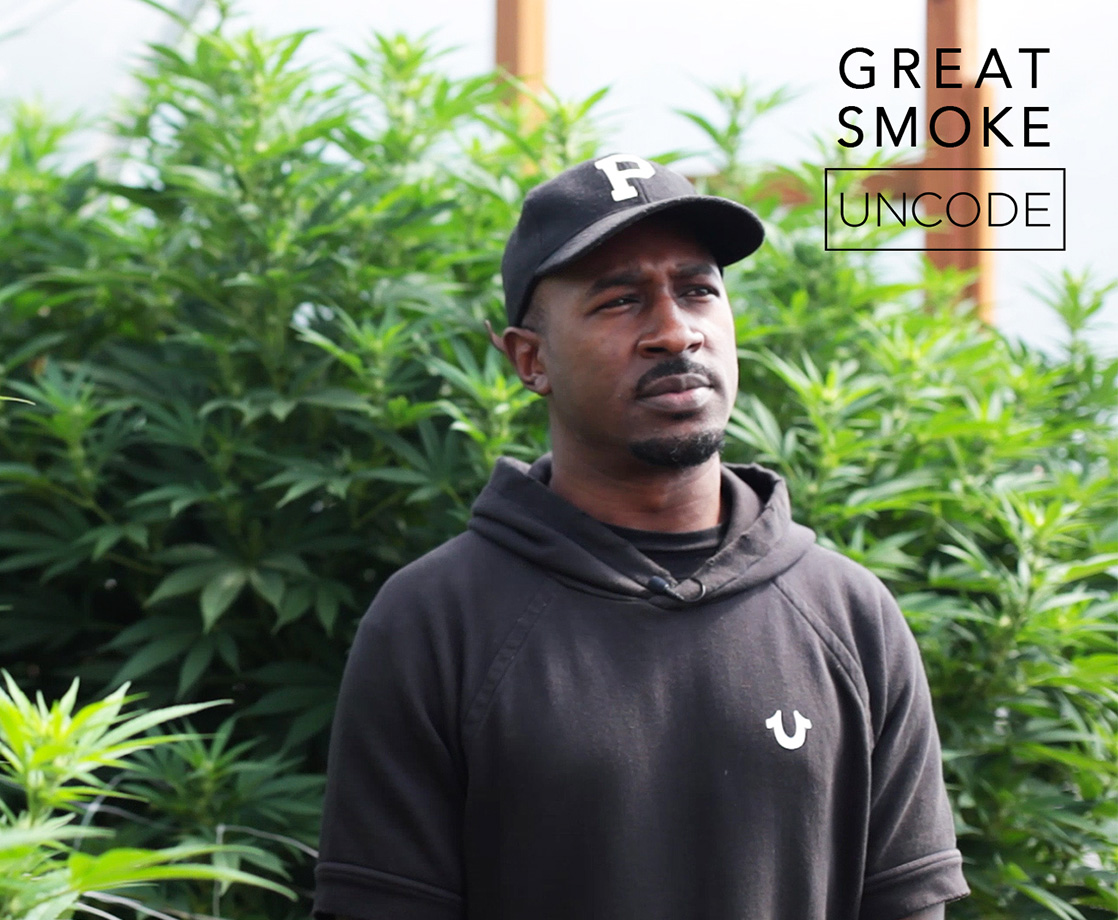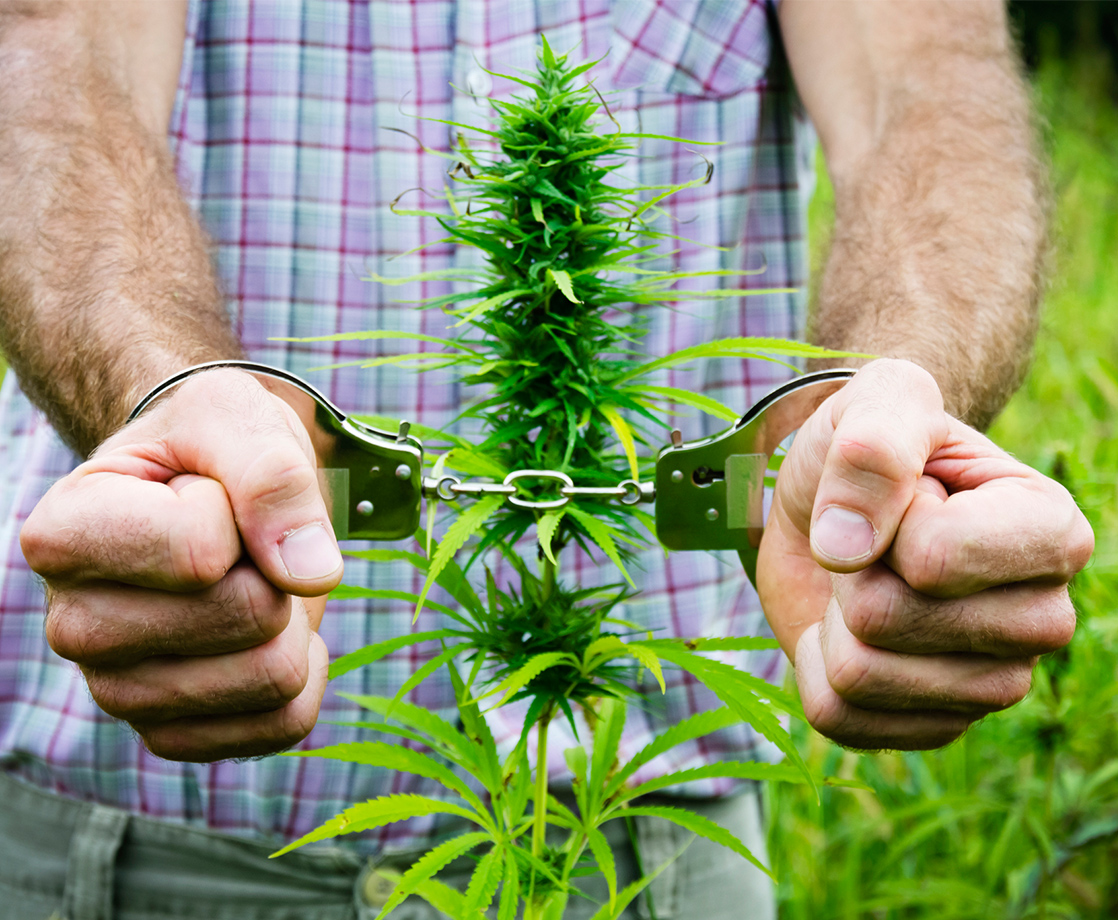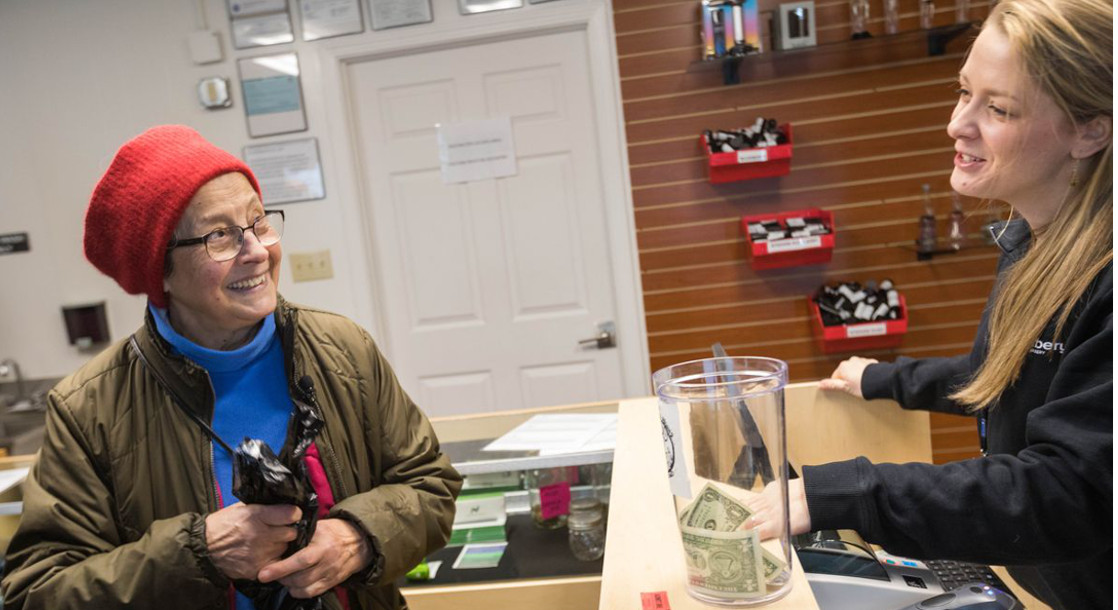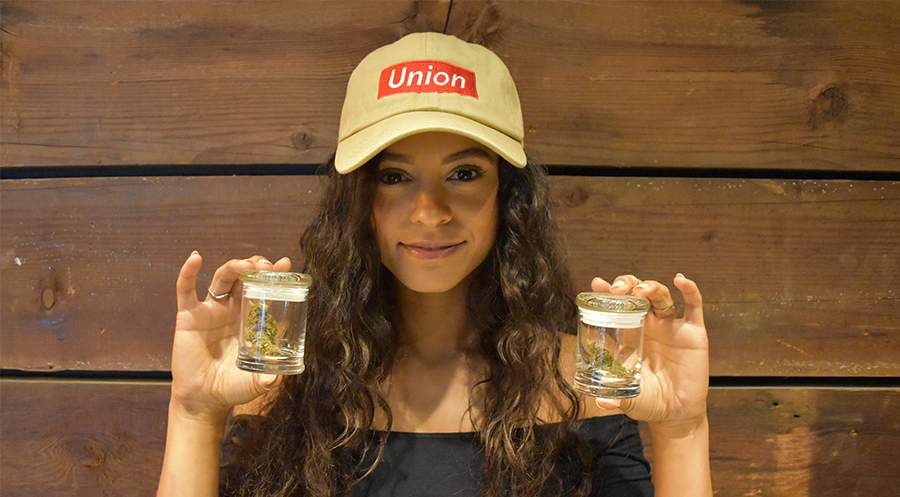All photos courtesy of UNCODE
Last October, in an update to their 2013 "War on Marijuana in Black and White" report, the ACLU stated that even after the decriminalization of cannabis in Massachusetts, black people were still disproportionately targeted and arrested for the sale and possession of cannabis in comparison to other ethnicities. “Black people continue to be arrested at higher rates for marijuana offenses than white people, despite the fact that white people use and sell at similar rates,” the ACLU wrote. “Disparity between black and white arrest rates also increased [over] several years since decriminalization.”
Historically, black and brown communities have been hit the hardest by the War on Drugs. And most states with legalized recreational cannabis have enacted laws to prohibit individuals with felony convictions — especially drug convictions — from working or starting a business in the legal cannabis industry, fueling today’s lack of representation of people of color in all facets of the so-called green rush.
The UNCODE's latest installment in their digital series of short-stories “told across the African diaspora” is Great Smoke. The ten-minute documentary spotlights the life of Jesce Horton, an award-winning cannabis cultivator and the co-founder of the Minority Cannabis Business Association. The film focuses on Horton’s unique journey and perspective as a black entrepreneur and activist in the legal cannabis industry. Great Smoke also features physician Rachel Knox, a “canna MD” who educates viewers about the synergy between cannabis and our bodies’ very own endocannabinoid system, as well as how cannabis can be used to help alleviate the symptoms of illnesses that afflict the black community, in particular. Cannabis activist Nikki Coleman also gets real about America’s epic fail with the War on Drugs, and Grammy award-winning rapper Killer Mike makes a special appearance to talk marijuana law reform and rising incarceration rates due to non-violent drug arrests.
MERRY JANE caught up with husband and wife team Ali and Myisa Plancq-Graham, creators of UNCODE, to discuss their latest short-form documentary. On top of breaking down how Great Smoke came to fruition, the entrepreneurs shared what surprised them most during filming and why they feel it’s important to give a platform to black professionals making waves in the cannabis industry.
Click here to view UNCODE’s full short film "Great Smoke." This interview has been edited for length and clarity.
MERRY JANE: What is UNCODE?
Ali Graham: The UNCODE series tells stories through the distinctive lens of black storytellers. We created UNCODE about a year ago and ultimately what we’re aiming to do is tell stories and represent the black community in a more holistic way. We produce short-form content that focuses on lifestyle subjects including art, tech, food, health, and travel.
Why was it so important for UNCODE to create Great Smoke and tell this story?
Ali Graham: We need this information out there, especially for black people who are trying to get involved or are curious about the cannabis industry. As the country is becoming more aware of the effects of cannabis, and cannabis legalization bills continue to pass in a number of different states, black people need to take advantage of this opportunity before big businesses and pharmaceutical companies figure out a tactical way to exclude blacks and minorities from the cannabis industry.
What were you most surprised to learn during the filming of Great Smoke?
Myisa Plancq-Graham: There are so many people that qualify to have their records expunged, but don’t even know that's a thing. That was definitely something I was unaware of. I learned about all the barriers that exist when you have a cannabis charge on your records, and it’s just crazy. You can’t live. It’s impossible to find a job, housing, and basic human needs are not available to you when you have a cannabis charge on your record, which could now be considered completely legal. This was another reason we felt Great Smoke was absolutely a story UNCODE needed to tell. Our community needs to know this stuff. This is information that could benefit Blacks and Latinos immensely, in a number of ways.
Ali Graham: Dr. Rachel Knox broke down how doctors in medical school are not taught a lot of natural medicine practices. She explained that in medical school she was taught how to manage diseases, not necessarily how to fix the issue. She defined root cause and how her main purpose is to try and figure out what the cause of these symptoms are and what the issue is, as opposed to figuring out what type of medication to put you on to manage your diabetes or other ailment.

Above, Ali Graham and Myisa Plancq-Graham. Photo by Annie Graham, courtesy of UNCODE
Why is black and minority representation in the cannabis industry so important?
Myisa Plancq-Graham: Representation matters always in every industry. Black people have to be involved in the cannabis industry. We have to make a presence so that things change for us because no one else is going to be invested in doing that for black people, but black people.
Ali Graham: Equity. When you have equity and you’re able to forge your way into the cannabis industry, then a lot of opportunity opens up. We now have jobs, there’s money being pumped into our communities, you’re beginning to take your health into your own hands. It solves a lot of problems and it’s important that black people get involved.
How can we increase black and minority representation in the cannabis industry?
Myisa Plancq-Graham: Talk about it. An easy way to start chipping away at the miseducation surrounding cannabis is to just talk about it. I’ve gotten into the habit of just talking about weed with people — friends, peers, and whomever — just to normalize cannabis. We’re not talking to one another enough. If I hear something completely false about cannabis, the effects, or black people consuming cannabis, or anybody for that matter, I’m absolutely going to speak up. I believe that’s something everyone who enjoys cannabis in one way or another should be doing: Always advocate for the plant and create a space for it until cannabis is normalized and demystified.
Also, to help increase black and minority representation in the cannabis industry, patronize black-owned businesses. Whether it’s a black-owned dispensary or black-owned grow facility, it’s not something only black people can and should do. If we live in a place where we’re really trying to build equity and truly believe that’s something that should happen, we should all be trying to patronize black-owned businesses.
Ali Graham: One of the ways would be to do more research on political candidates in your communities. People create the laws, it’s not this godsend thing you can’t change — you can rewrite it. It might take awhile, but it can be done.

What makes Great Smoke unique from other cannabis documentaries?
Myisa Plancq-Graham: First and foremost we create all of our content with the gaze of black people in mind. That’s the unique approach with any of our stories, but definitely with this cannabis story. We’re really trying to come from a place of edifying people. We want to try and give people resources and tools they can use in real life to help make change. Thats our goal with all of our content. More than just being on some “this is trendy and cool to talk about weed” [vibe], we’re trying to be a tool and provide resources for our community.
What projects is UNCODE working on next?
Ali Graham: UNCODE is documenting Nikkita Oliver’s journey to become Seattle’s first Black and Queer Mayor. We’re really excited about it.
Myisa Plancq-Graham: It’s huge and we’re super excited to be able to be privy to her journey and document her progress.

What’s your vision for the UNCODE series?
Ali Graham: Keeping it consistent with who we want to be, where our audience predominantly is, and where it’s most easiest for them to consume our content. We want to continue to establish a presence online. We’ve been in the digital space since starting UNCODE and it’s been really interesting. However, throughout the course of doing this we realized that we have an audience who would come out to film screenings. We believe we can create something that works in that medium, as well.
Myisa Plancq-Graham: From the beginning, we wanted to build a collective of artists, writers, filmmakers, poets, photographers, and storytellers to contribute to UNCODE. I would love to be able to grow a community of contributors and storytellers to continue to add facets to UNCODE because black people are a diverse community of people. In and out of this country, black people come and live in every kind of way you can imagine, and in realizing the impact and power of media, UNCODE felt a responsibility to create content that has incredible influence and impact on people. UNCODE believes if you can’t see it, you can’t be it. So, let’s make it visible. Let’s make us visible. We want black people to see one another.
Follow UNCODE on Instagram and like their Facebook page to stay up-to-date with their latest stories.
Follow Nicolle Callier on Twitter











